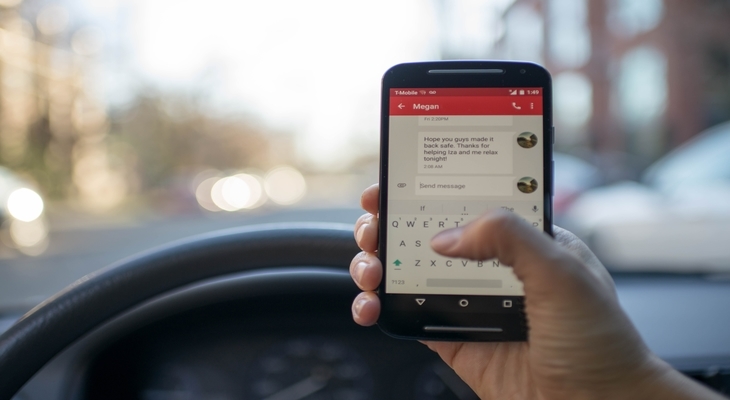5 Online Scams That Target Malaysian Students
Heard about a lot of internet scams happening in Malaysia lately? Be sure not to fall for these tricks by unscrupulous scammers.
Updated 24 May 2019

Did you know that in a survey conducted by Telenor Group, 46% of Malaysian respondents have been victims of an online scam? Not only that, 63% of them actually lost money from these scams!
While the digital age has opened up plenty of opportunities for people to earn money, it has also made it easier for unscrupulous individuals to cheat people of their hard-earned cash.
Want to avoid being the next target? Buckle up as we explore 5 popular internet scams that prey on college students.
#1. The social media scam
Are you receiving new ‘follow’ requests from someone you know, who then asks you for your phone number?
You may be the target of a social media scam!
This scam technique involves a scammer impersonating a friend by creating a fake social media account (e.g. Facebook, Instagram). They make it look like the real deal by using a similar account name and copying photos from the original profile. Subsequently, they send out ‘friend’ or ‘follow’ requests to dupe the friends of the person they are impersonating.
As soon as you accept the ‘friend’ or ‘follow’ request, the scammer will ask for your phone number. The excuse? They’ve lost their phone and need your help to get back their original social media account. Once you disclose your phone number, you will receive an SMS with a 4-digit code, which they will then ask you to reveal to them.
The code is used to hack into your social media account or in some cases, to make online purchases!
How to avoid getting scammed:
- Do not share your personal details (including your phone number), especially to a friend who has a duplicate social media account.
- If you’re unsure, always verify the person you’re chatting with by asking questions only they would know or contacting them through phone or using another social media platform.
- Set your privacy settings to private and hide your friend’s list from public view.
- Never send any codes you receive via SMS to anyone, including your friends.
#2. The work-from-home scam

Who doesn’t like the idea of making money from the comfort of their own home? As students, any form of extra allowance with minimal work is attractive — and this makes you all the more vulnerable to scams like these.
So how do you tell if it’s a scam or not?
For starters, if it sounds too good to be true, it usually is. “RM1,000 a week!!!”, “Work at home or anywhere you want!!”, “Earn RM400 with just 3 hours of work!!!” — these are all signs of suspicious job ads out to scam people.
The ultimate red flag, however, is when you’re asked to pay a deposit before they release more information about the job. They will claim that it is a ‘’processing fee’’ to get you started, but don’t fall for it! No legitimate company will demand any sort of payment. In fact, they would want to give out as much information as possible to appeal to more candidates.
How to avoid getting scammed:
- Avoid “get rich quick” job ads that guarantee you financial rewards for minimal amount of work. If it’s too good to be true, it usually is.
- Always verify the legitimacy of companies by researching online. Check out the company’s website, social media accounts and business reviews.
- Never pay for anything. If the job requires you to shell out money for “processing” or “training”, it’s usually a bad sign.
PRO TIP
#3. The online dating scam
Online dating is convenient and fun — you get to talk to as many people as you like without committing until you finally find “the one”. But there’s just one problem — when “the one” turns out to be a scammer.
Online dating con artists are one of the worst scammers as they can be very convincing. These scammers take the time to gain the trust of their victims by interacting with them every day, slowly building a relationship with them until their victims feel attached. Once their victims are hooked, these scammers slowly begin to request for gifts and money, which can amount to a huge sum over time. In fact, in 2018, there were 13 cases of victims losing up to RM6 million!
How to avoid getting scammed:
- Always perform a thorough background check on whoever you’re talking to, especially if their profile picture appears unusually attractive.
- Never send money or gifts online to anyone who you’ve never met physically. If they get angry that you’re unable to help, this is a warning sign.
- Trust your intuition and be wary of stories that don’t add up. Always ask questions and verify their story later.
- If the individual you’re communicating with refuses to have a face-to-face meeting or even a video call, chances are, he or she is a fraud.
Apply for university with EduAdvisor
Secure scholarships and more when you apply to any of our 100+ partner universities.
Start now#4. The mule account scam

Do you share your debit/credit card details or PIN number with your friends who need help? If you answered yes, your account might be at risk of being used as a mule account (an account used by scammers to transfer stolen money).
According to The Star, cases of mule accounts are rising and are now involving school and college students. In a survey done by the paper, 1 out of 4 students share their banking details with trusted friends. Unfortunately, many of these students have fallen victim to their friends who use their accounts for illicit purposes.
For example, there was a case where a university student was accused of being involved in a scam after he gave his secondary school friend access to his bank account to receive stolen money.
How to avoid getting scammed:
- Never share confidential information such as your bank account details, PIN number and passwords with others, not even your friends.

#5. The online shopping scam
While online shopping sites and apps such as Mudah and Carousell offer a convenient platform for users to buy and sell items, they are also another avenue for fraud to take place. These scams can affect either the buyer — who never receives the goods upon purchase — or the seller — who never receives the payment.
Here’s an example of a scam where the seller was a victim. Once a purchase has been confirmed and the interested “buyer” receives the seller’s bank account details, the buyer will claim that he has transferred the payment to the victim. After that, the “buyer” will tell the victim that he or she has been overcharged by the bank and the victim has to refund the amount or else the transaction will remain pending.
How to avoid getting scammed:
- When making deals online, be mindful that if a deal is too good to be true (e.g. an interested buyer who’s willing to pay more), it most probably is. No one likes to pay more than required.
- When using an online shopping platform such as Carousell, make sure to only conduct deals on the site itself and reject offers to move to another platform like WhatsApp for discussion.
- Always contact your bank directly to double check if there are any incoming or outgoing transactions as claimed. Your local bank will be able to verify the information with you.
- Never give away confidential information such as your credit or debit card numbers to an unknown site or app.
There are still plenty of other scams happening everywhere on a daily basis, so always be alert. Remember, if it sounds too good to be true, it probably is.









